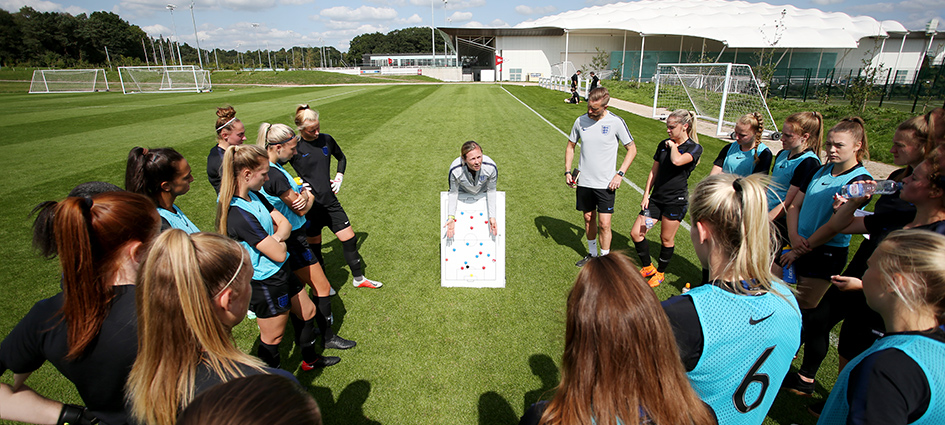England insight

Plan, Do, Review
- The Boot Room
- 23 December 2019
The Boot Room looks at how the England DNA Plan, Do, Review model is used by the England teams.
The England DNA aims to create a rich and positive learning and development environment for future England players to prosper in. Every block of time with the players will be strategically planned, delivered and reviewed using the Plan, Do, Review model, with the aim of linking together player learning and maximising development opportunities.
England DNA game strategy – planningEach England development fixture forms part of a wider strategy which aims to maximise opportunities for player learning and development. Planning the game strategy - the first part of the DNA Plan, Do, Review process – ensures individual and group objectives are established and that learning from previous events and training sessions are extended and built upon.
Planning the game strategy - for a fixture or tournament - involves forming a tactical plan based on the availability of players, opposition analysis and the conclusions and recommendations from any previous training or game reviews. Detailed consideration of the game or event ensures the most appropriate group of players are chosen for the particular fixture, with strategy influencing selection.
To develop the game strategy, England coaches work collaboratively with performance service functions such as sports science, physiotherapy and performance analysis to ensure all relevant data and feedback are utilised. Similarly, England coaches will work closely with the operational team support to prepare all event logistics including player release discussions with individual clubs.
Collaboration between the coaching and operational staff helps ensure all logistical decisions including schedule, travel, accommodation and training ground location are made with the player and the learning environment in mind.

England DNA training strategyEvery aspect of an England training session is meticulously prepared for, with the England Coaching Fundamentals acting as a framework for practice design and delivery. All training activities are designed with consideration of the forthcoming fixture or event and the individual and collective needs of the group.
Individual and collective learning objectives based on The FA four corner player development model - technical, physical, psychological and social - provide a focus for each activity and are developed through collaborative discussion with input from all elements of coaching and performance services support staff.
Planning the training strategy ensures every opportunity for player development and learning, both on and off the field, is maximised. Pre- and post-training activities such as analysis and reflection, which link to the training activity, form a crucial part of the training strategy.

DNA coaching fundamentalsAll England training sessions are designed around the following core principles:
- Use a positive and enthusiastic manner with players at all times.
- Deliver realistic game-related practices.
- Use games whenever possible in training.
- Develop practices that enable the players to make lots of decisions.
- Connect with the group before the session outlining the aims and objectives.
- Connect, activate, demonstrate and consolidate in every session.
- Value and work equally across The FA four corner model.
- Spend equal time delivering, planning and reviewing.
- Include elements of transition in all practices and sessions where possible.
- Use a carousel approach to practice design maximising playing time.
- Use varied coaching styles based on the needs of the group.
- Aim for a minimum of 70% ball rolling time in all sessions.
This article was first published in The Boot Room magazine in August 2015.


























